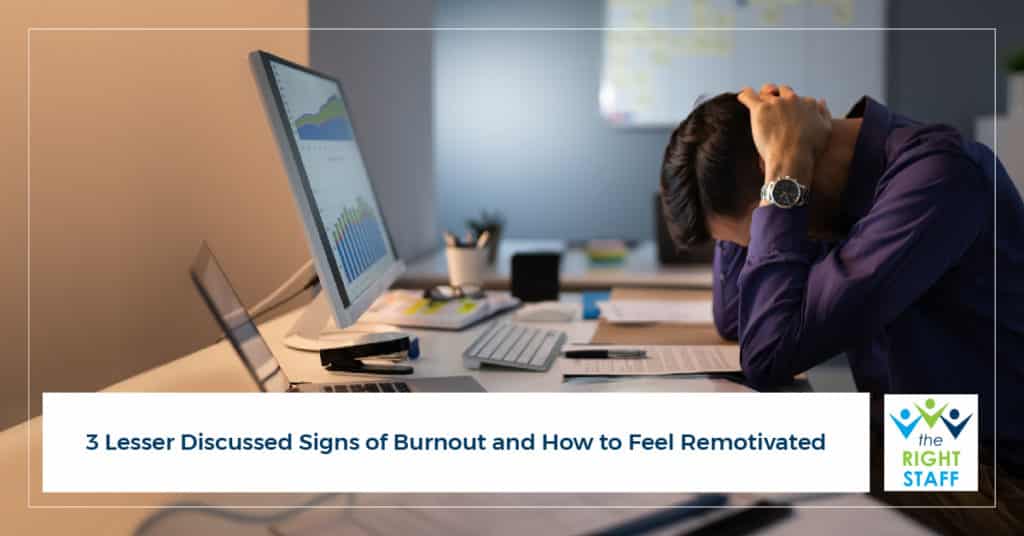The most common signs of burnout include depersonalization, emotional exhaustion, and feelings of cynicism, detachment, and lack of accomplishment. These typically result from experiencing chronic stress at work. Common sources include a lack of control over the work schedule, too much work, unclear job expectations, and poor work-life balance.
However, employees also can experience chronic stress from issues unrelated to work. Examples include being the primary caregiver for a parent or child.
Chronic stress can lead to less obvious signs of burnout. These tend to include a growing sense of feeling physically and mentally unwell and difficulty coping with everyday life.
Burnout can have adverse effects on your physical and mental health. This is why you need to recognize the signs and manage the underlying issues to maintain both your workload and healthy relationships.
Discover three lesser-acknowledged signs of burnout and how you can manage their sources to stay productive.
Stomachaches
Chronic stress can lead to gastrointestinal problems. These may include pain, bloating, nausea, indigestion, diarrhea, or constipation.
The following tips can help reduce stomach pain:
- Make sure you get enough sunlight and sleep.
- Regularly exercise.
- Practice mindfulness.
- Connect with others.
- Find healthy ways to unwind.
- Reach out to coworkers for collaboration.
- Ask family and friends for support.
- Consider talking with a therapist about the underlying issues.
- Learn some tools to navigate workplace challenges.
Weight Gain
Chronic stress can lead to weight gain. Among the main reasons are changes in eating habits and cortisol levels.
People experiencing chronic stress often engage in emotional eating. They may eat more than is needed to help them feel full, consume foods higher in fat, or not regularly exercise.
Chronic stress triggers the release of the hormone cortisol that causes the body to store fat cells, typically in the abdominal area. Cortisol also promotes the development of fatty liver disease, which can lead to cirrhosis and liver cancer.
Weight gain can increase the risk of stroke, heart disease, cancer, arthritis, or other health issues. This is why it needs to be managed as soon as possible.
The following tips can help manage chronic stress:
- Talk with your manager about setting healthy boundaries.
- Avoid work-related activities after work hours.
- Exercise for at least 30 minutes daily.
- Get adequate sleep each night.
- Consider talking with a therapist.
Muscle Pain
Chronic stress can lead to muscle aches. When you feel stressed, your muscles tense up to guard against pain and injury.
Chronic stress can cause the body to remain in a stressed-out state. This tends to cause tension in the head, neck, shoulders, or back. As a result, you may experience dizziness, fatigue, cramps, or pain in different areas of your body.
The following tips can help reduce muscle pain:
- More effectively manage your time.
- Talk with your manager about reducing your workload.
- Exercise daily.
- Get adequate sleep nightly.
Find a New Job
Work with The Right Staff to find a new job in Minneapolis that reduces your odds of experiencing burnout. Get started with us today!




